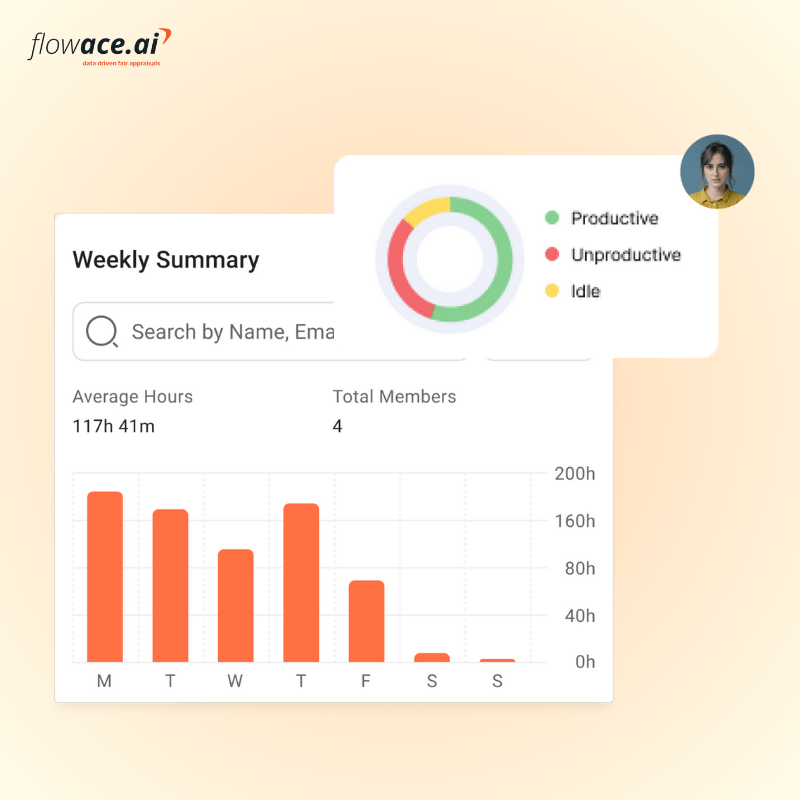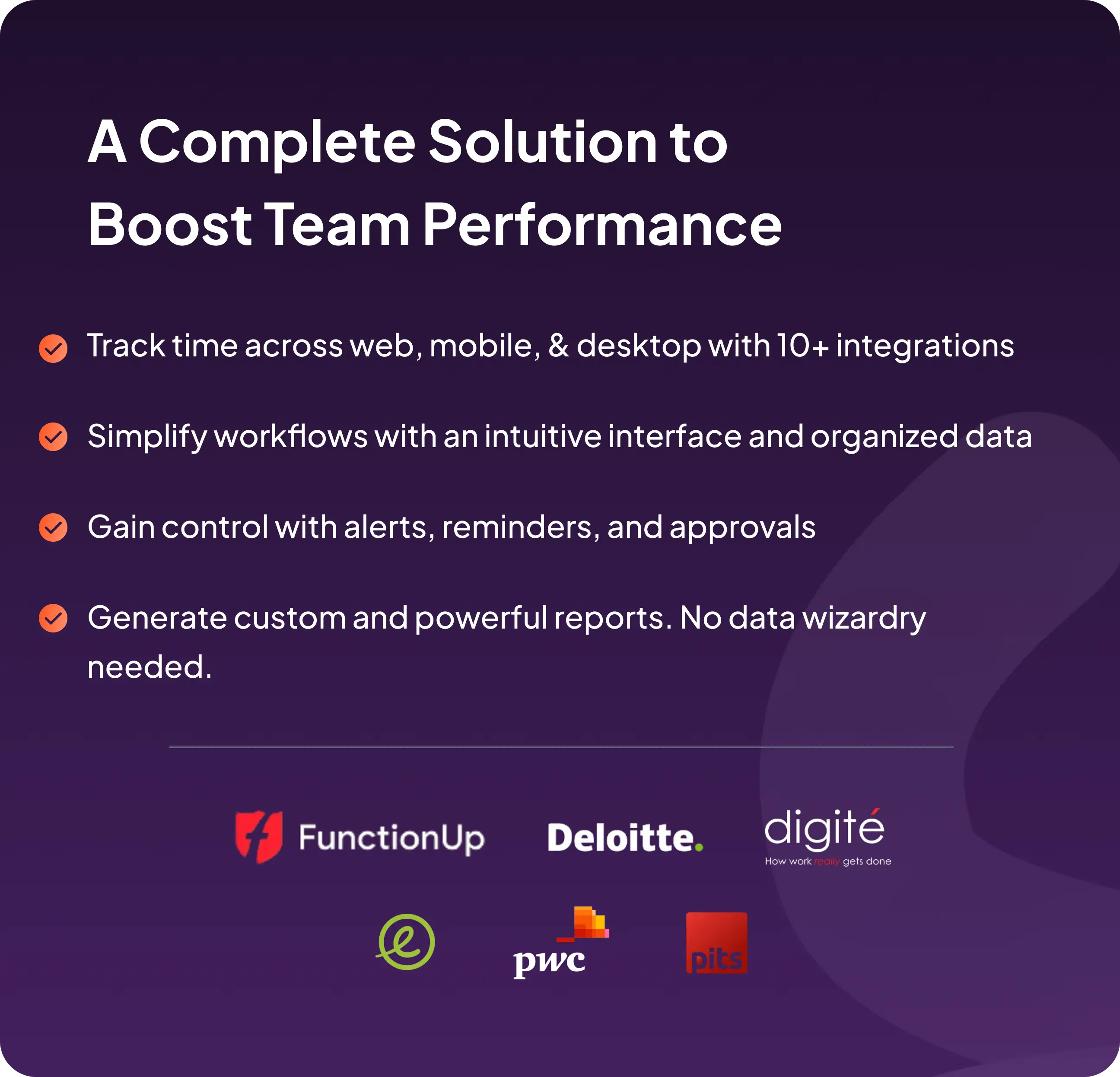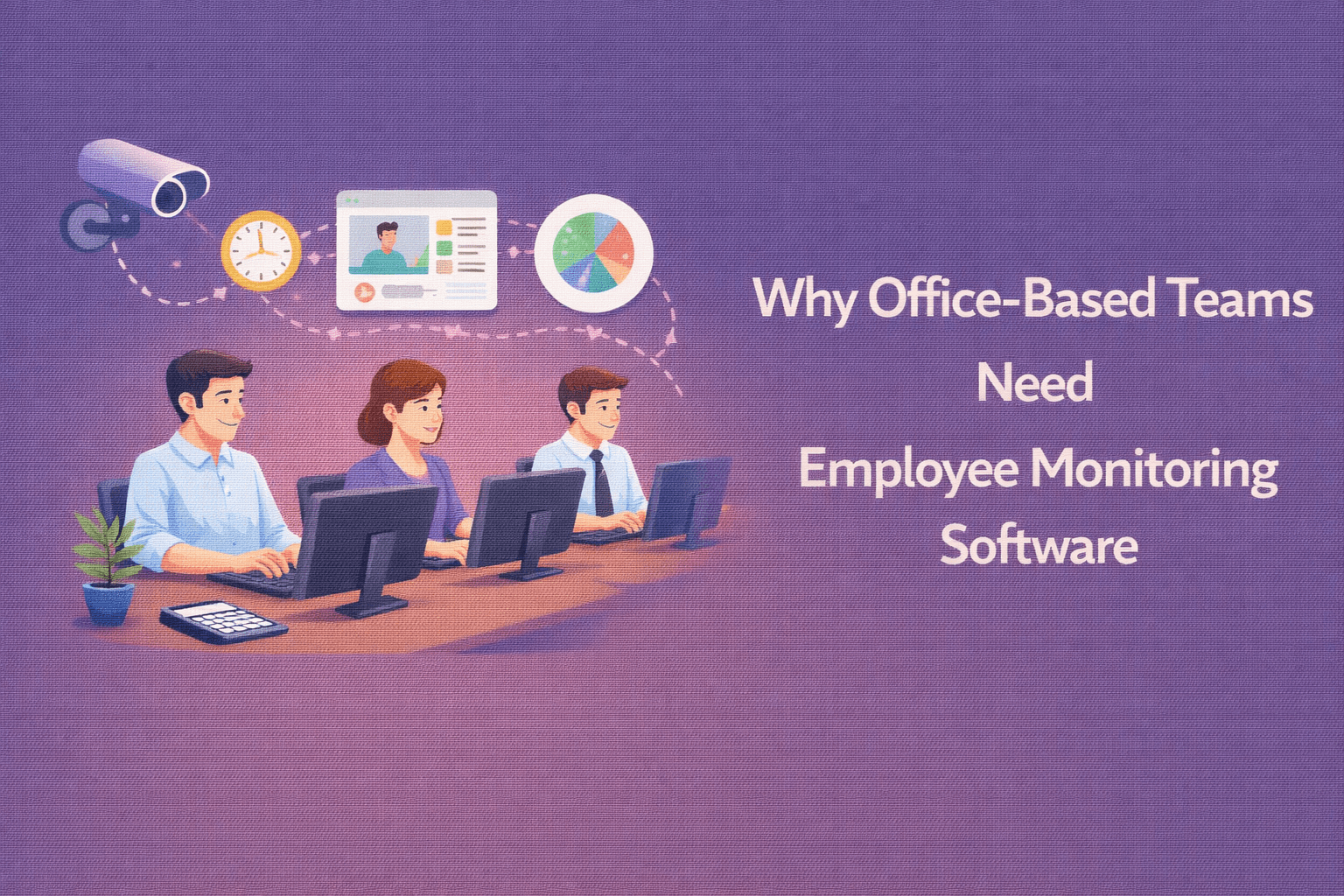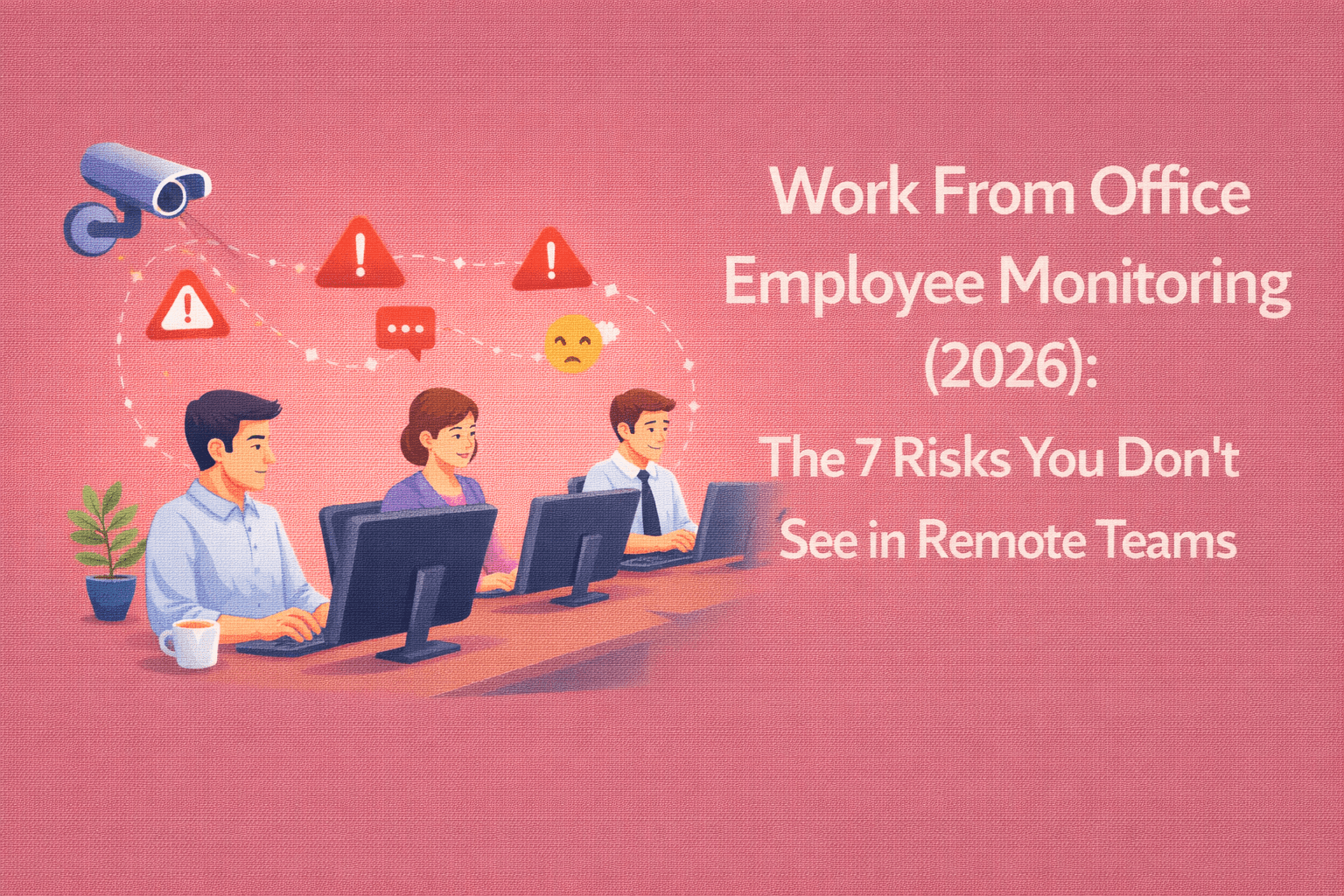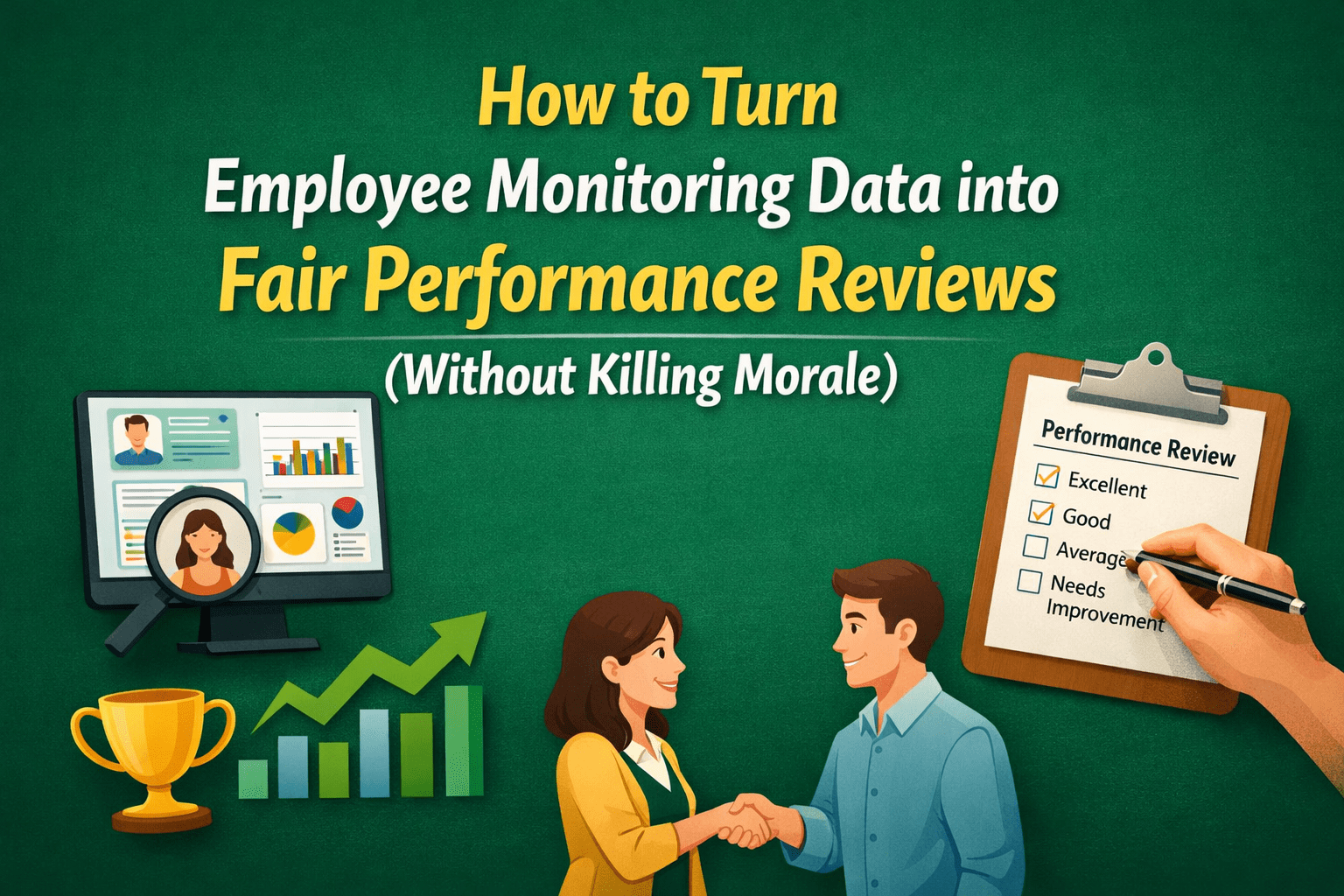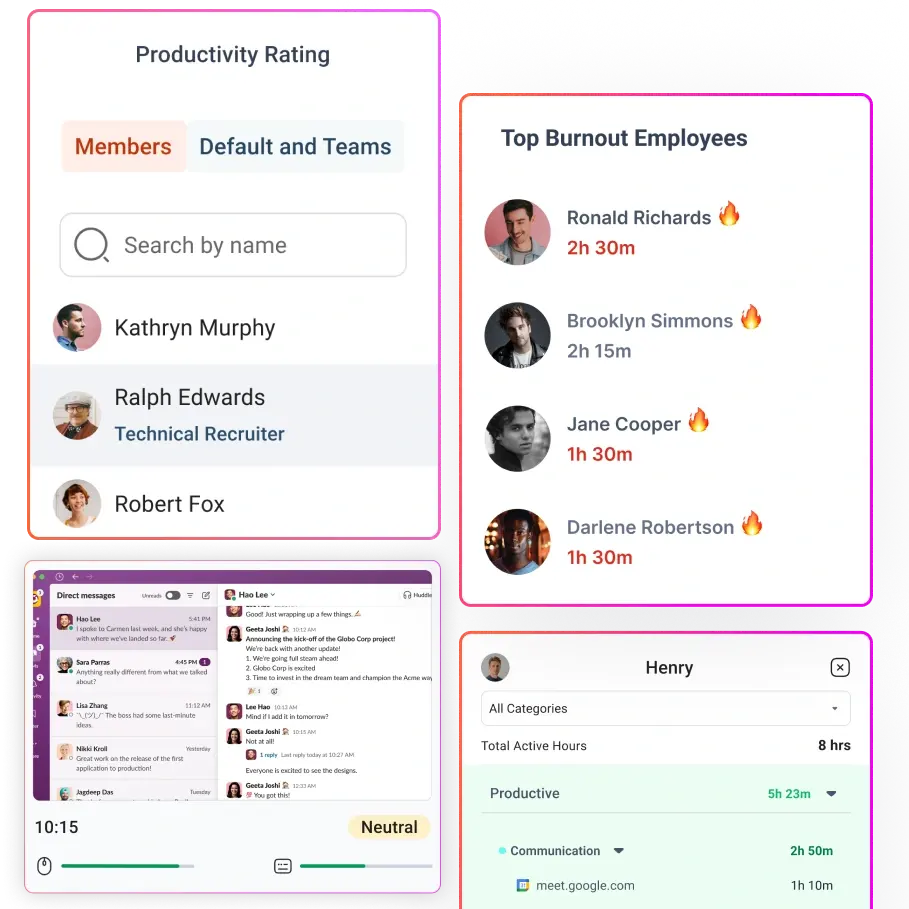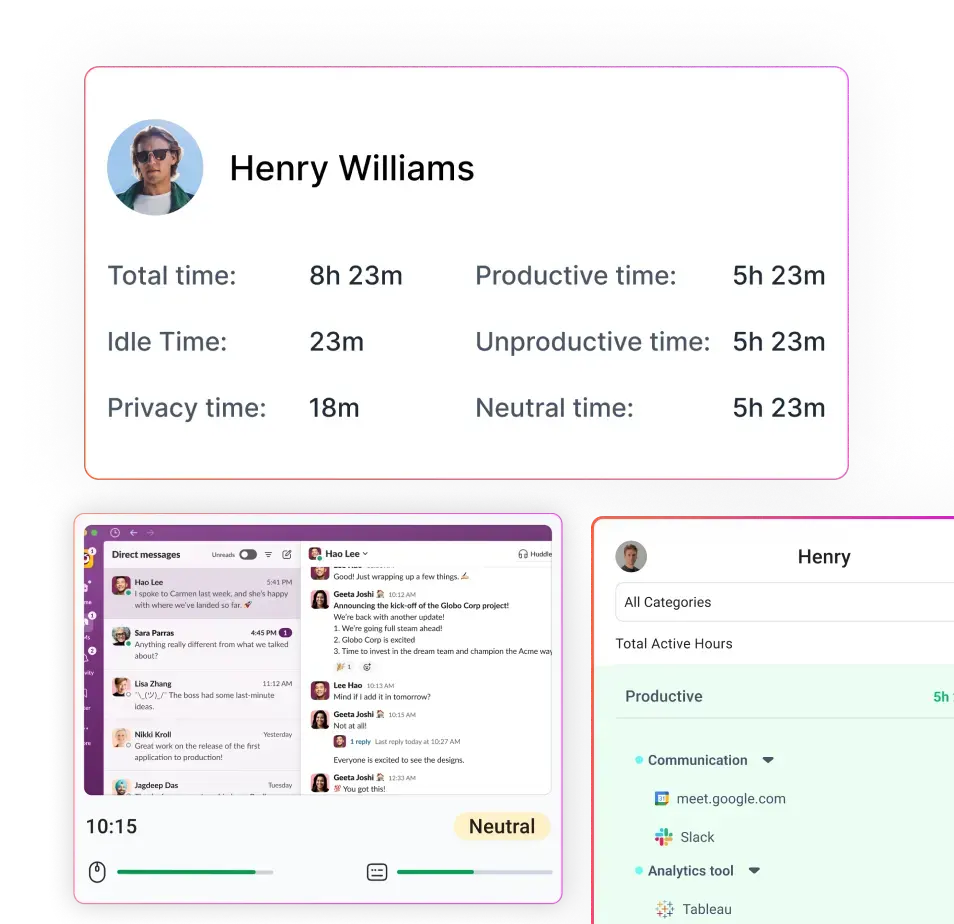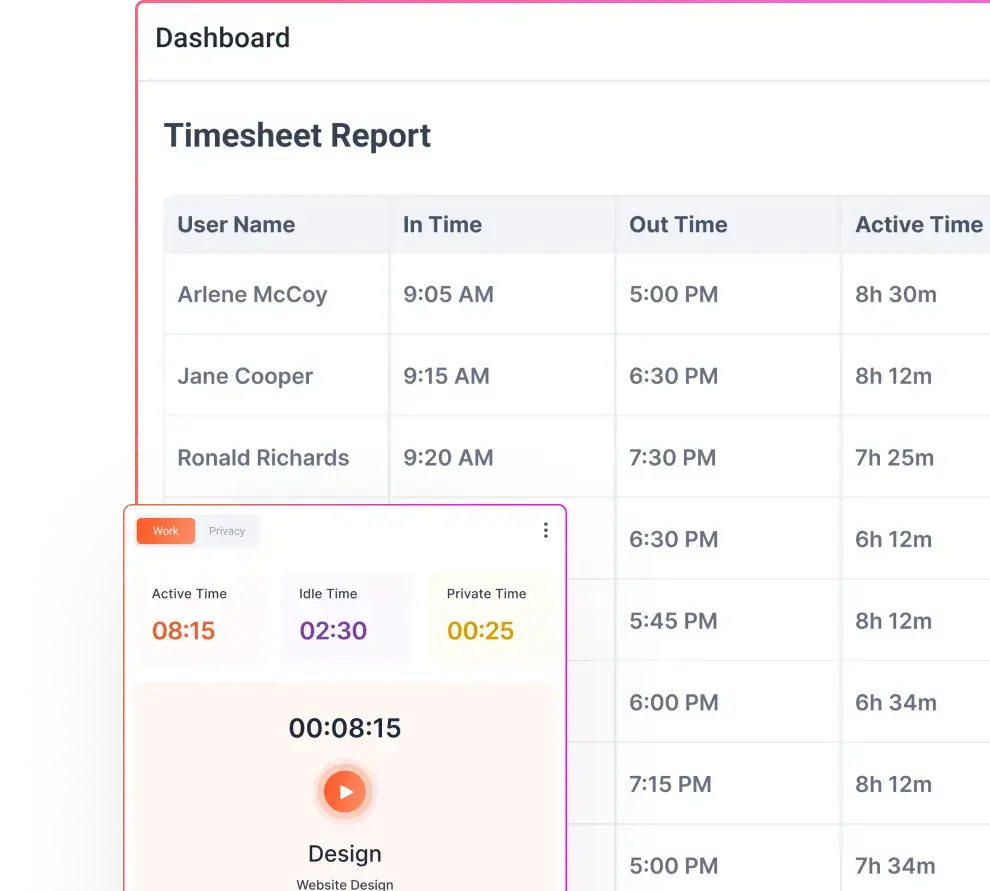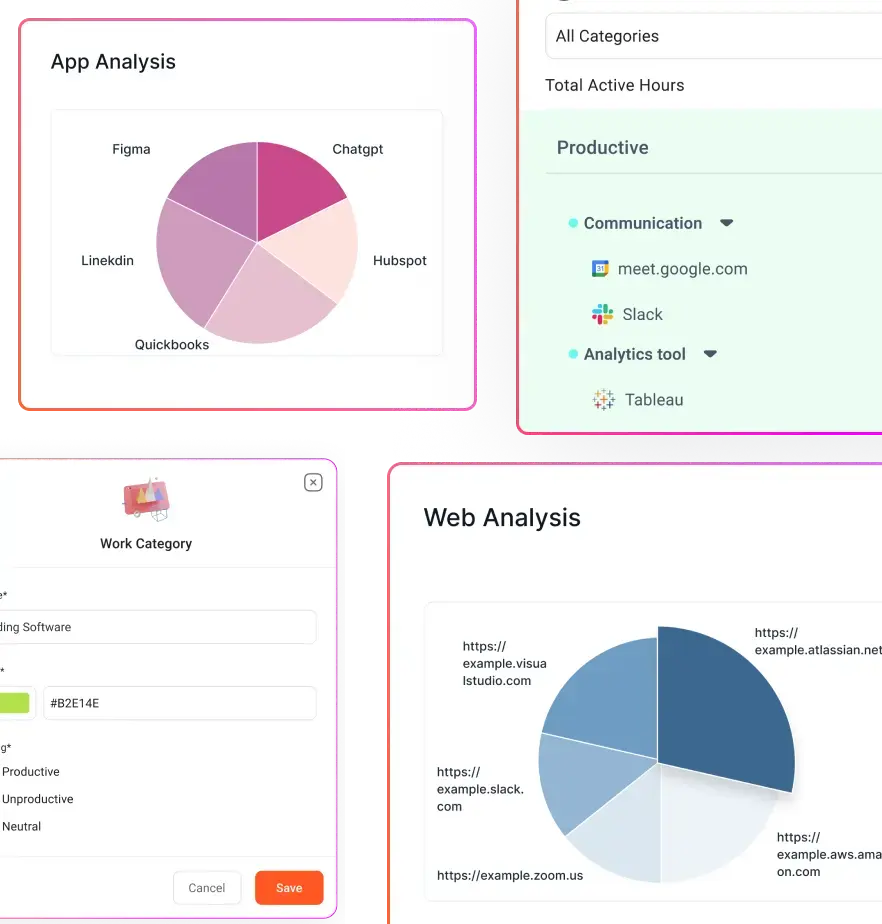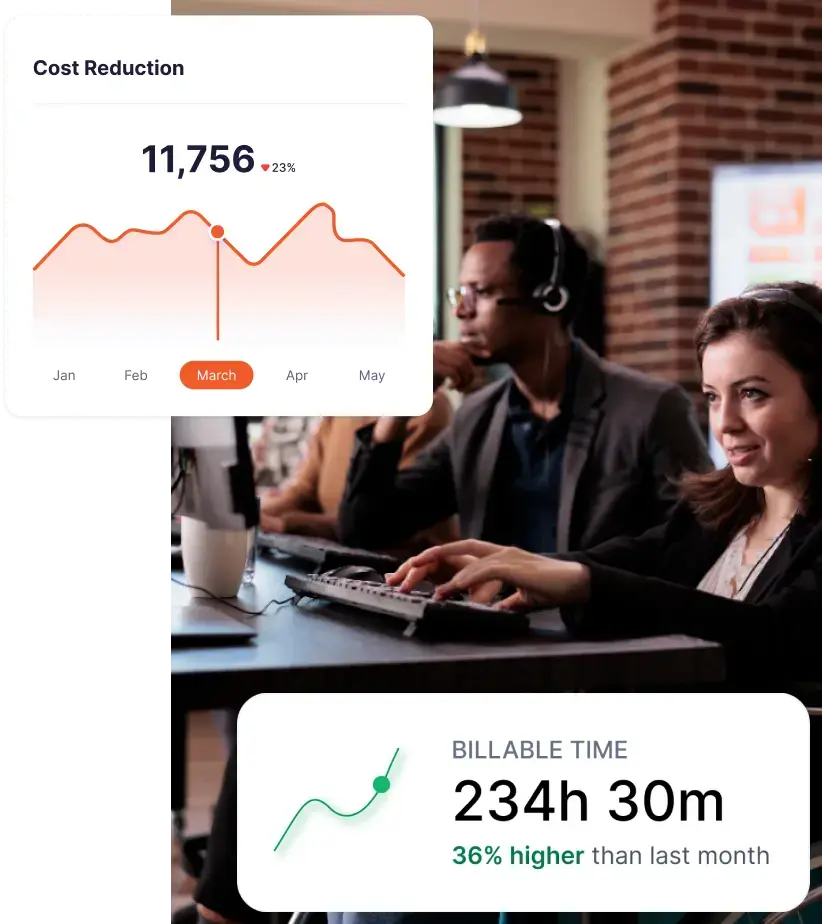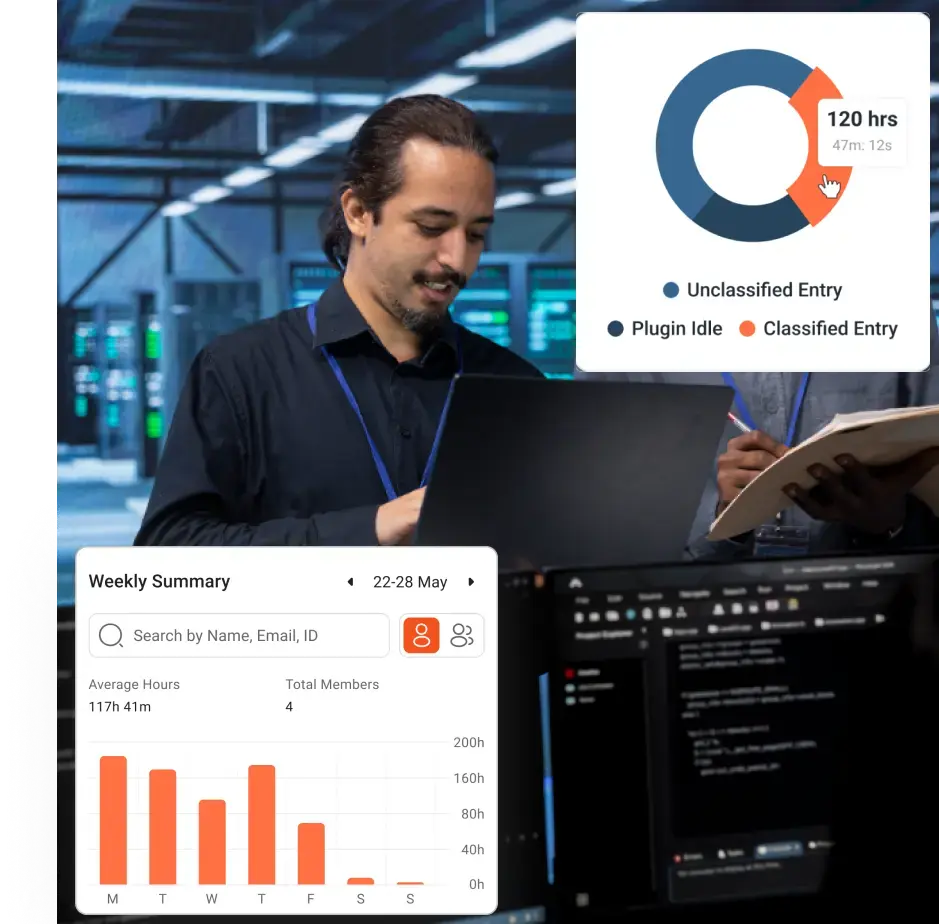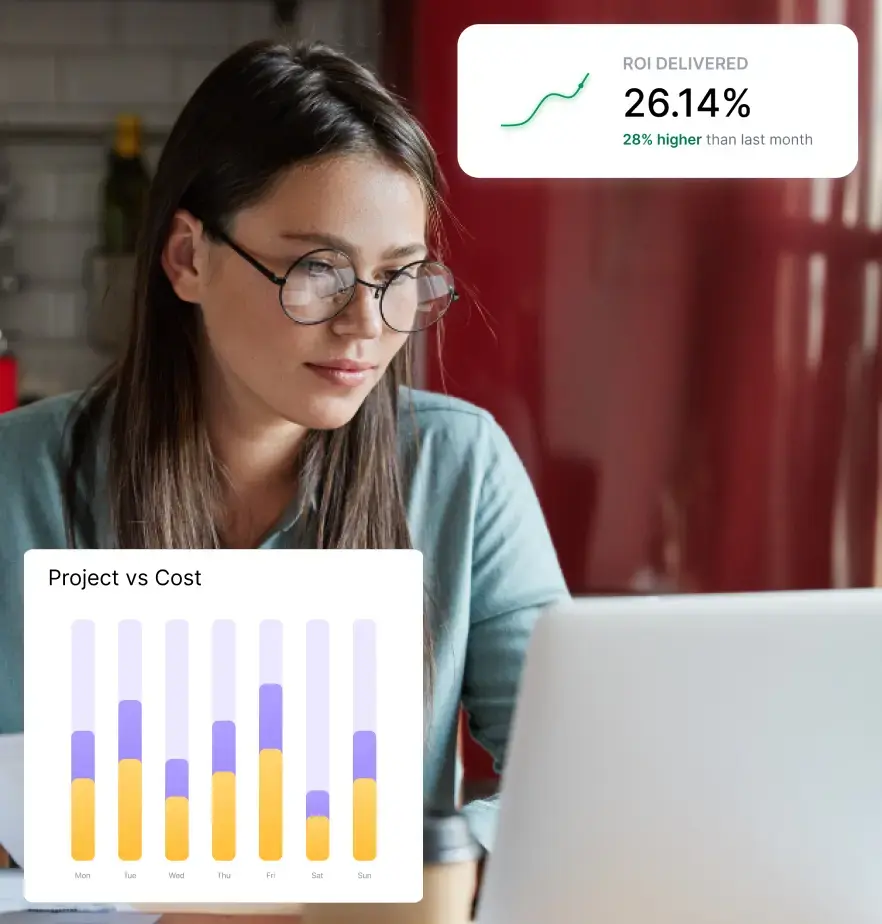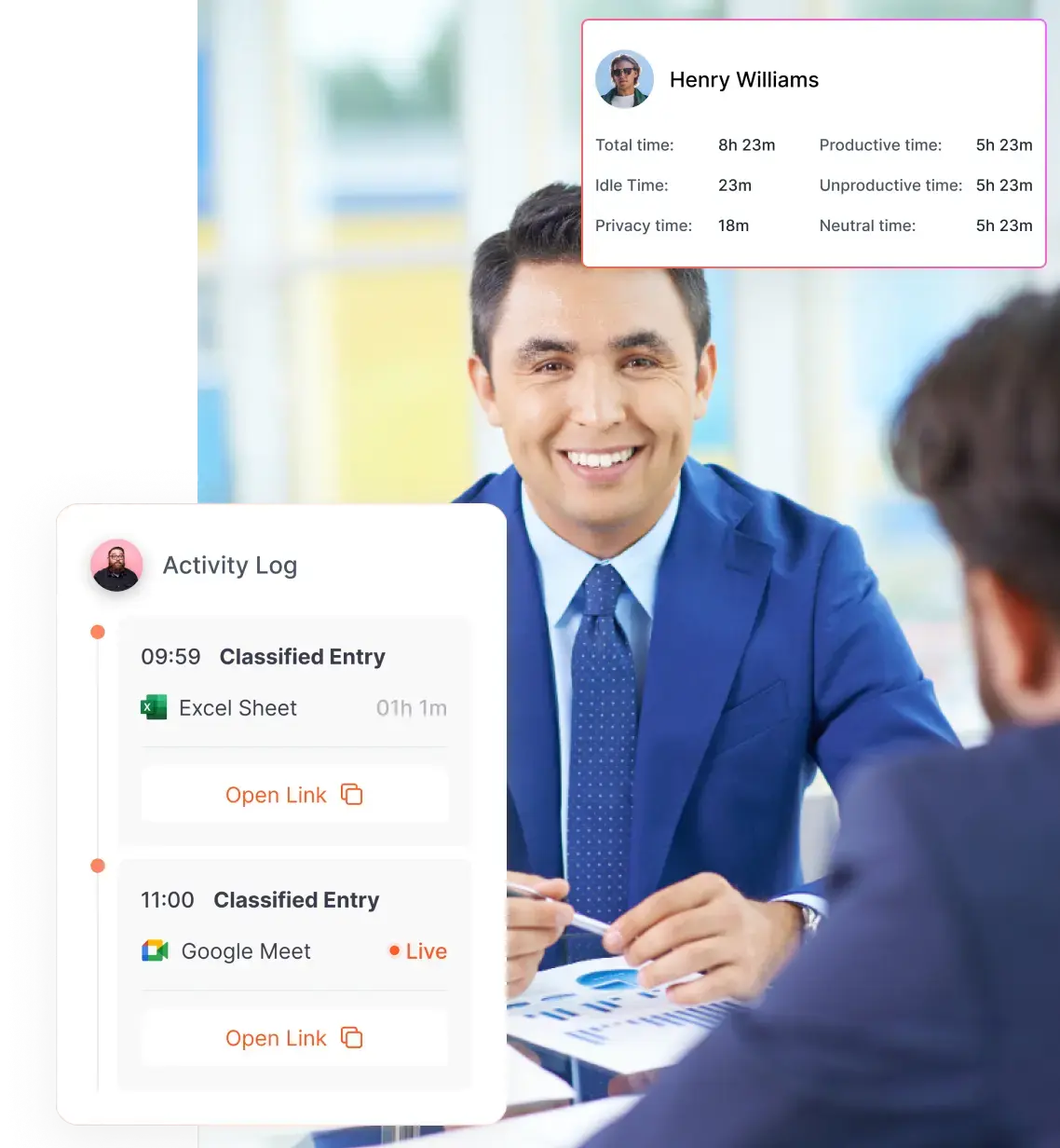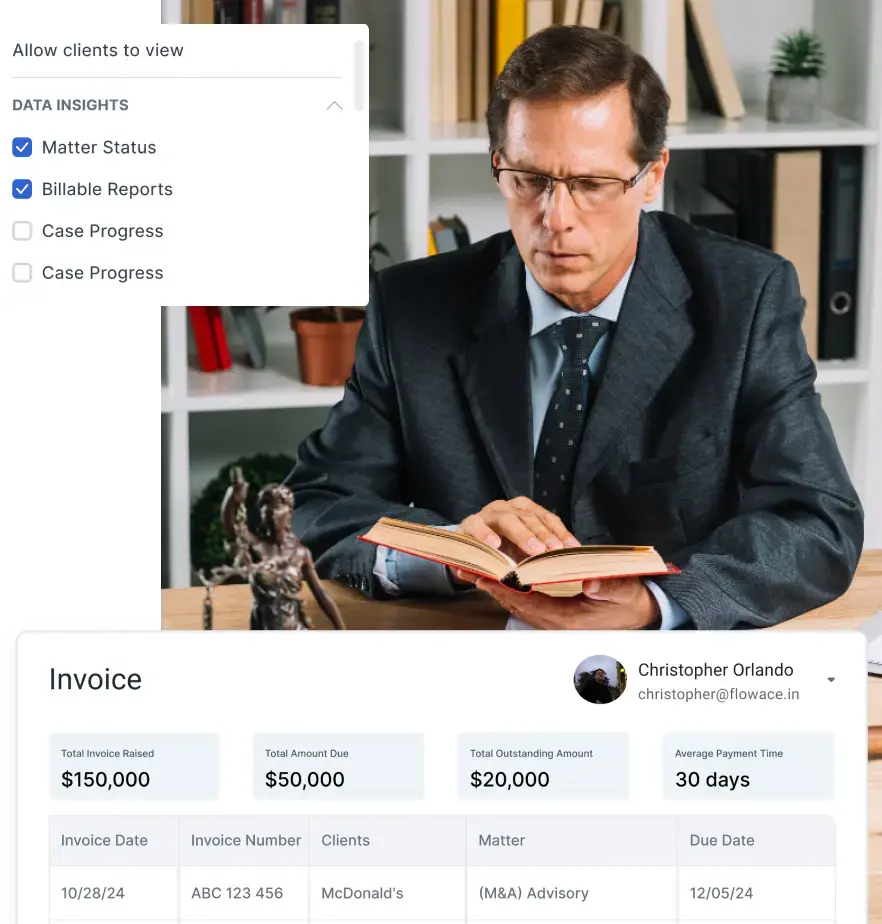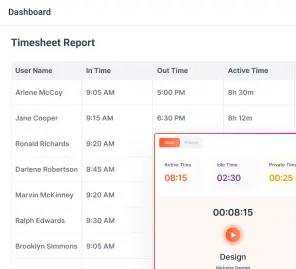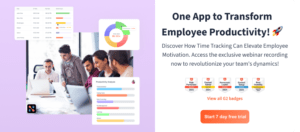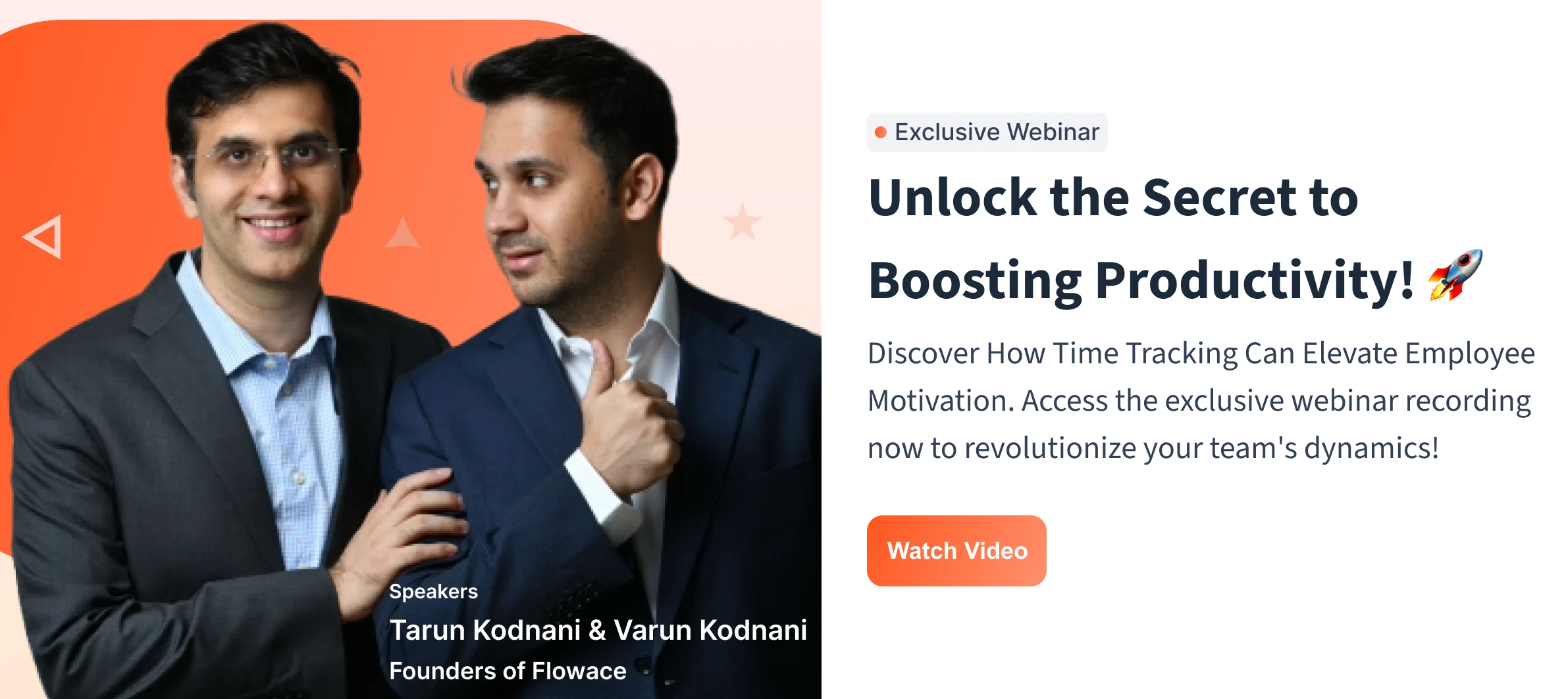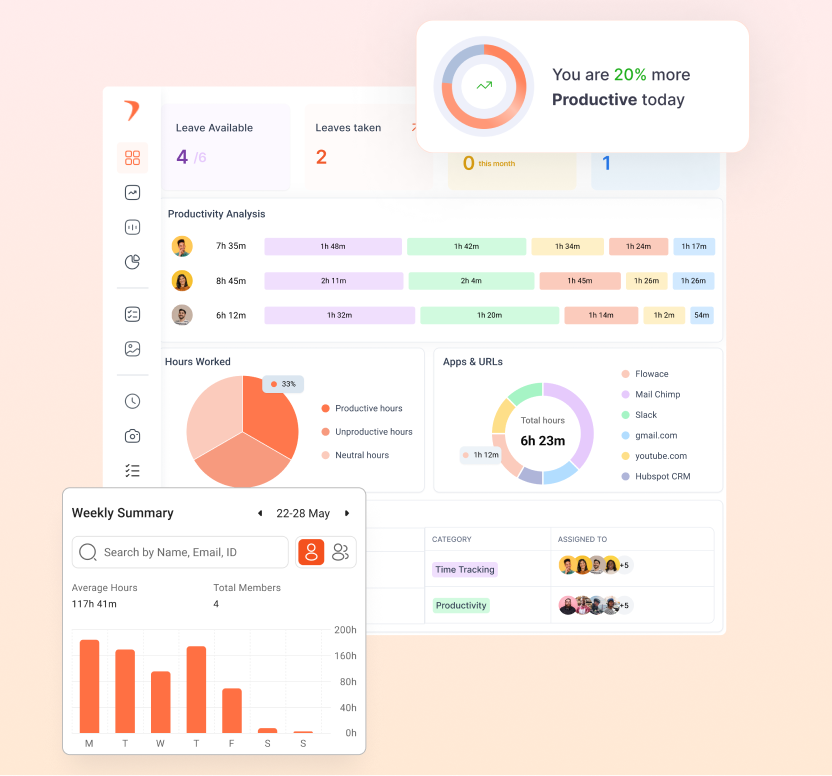Staff Monitoring Software
As we dive into the talk of heading back to the office and weaving trust in the employer-employee dance, HR Software-as-a-Service (SaaS) firms are painting a different picture.
Surprise! Companies are still hooked on staff monitoring software, from time-tracking solutions to productivity analysis.
This guide will unravel the future chapters of staff monitoring software, giving you a quick intro to the game.
Plus, we’ll peek into the diverse industries embracing this technology and spill the beans on how it’s a win-win for both bosses and the workforce. Whether you’re looking for the best time tracking tool for marketing agencies or for a healthcare team, this guide has you covered.
What is staff-monitoring software?
Staff monitoring is a program that keeps tabs on what your employees are up to. The workplace is covered, from tracking productivity and work hours to peeking at internet usage, location, and computer activity.
It’s deployable on computers, smartphones, tablets, and other work gadgets. In simple words, it is a multitasker. It’s not picky—it monitors both in-office and remote warriors during their hustle hours.
Now, some examples of staff monitoring software are:
- Flowace: The all-seeing eye on productivity, work hours, and internet usage
- Time Doctor: The data gatherer, capturing insights into productivity and computer exploits
- Insightful: The time and attendance genius, making clock-ins and clock-outs a breeze
Employee monitoring software can show:
- Screenshots or screen recordings are sometimes
- If employees are active during work hours,
- How long they’ve been on the Internet and if they’re playing games or on social media
So, is the demand for staff monitoring software rising?
Yes, the need for employee monitoring systems is increasing, especially with more people working from anywhere and at home. Even though COVID restrictions have eased up, the trend continues. Big companies with branches all over are ditching small-town offices to save on rent and letting employees work from home.
cloud software monitoring tools are crucial for protecting a company’s network and secrets from cyberattacks.
Policies like unlimited leave, feedback-heavy assessments, and super flexibility are stealing the spotlight in the post-pandemic world. But interestingly, more companies are getting into employee-monitoring services.
Still, the big shots in the industry say it’s all about how companies explain why they’re using monitoring services: to boost productivity and safeguard data. Also, they argue that assessments become fairer when backed up by data.
Why must employees know they’re being monitored?
Sure, common staff monitoring software helps keep tabs on employees and makes them more focused and productive. It helps find problem areas, shift resources, cut distractions, and beef up cybersecurity by quickly catching hackers or shady activities.
But here’s the catch: Instead of sneaking around for these benefits, being upfront with your team is better. Here’s why:
Trust Matters
Secretly watching what your employees do can make them think you don’t trust them. This trust issue can mess up your company culture, leading to lower morale and productivity—the opposite of what you want.
Approach Matters
Rather than being a secret spy boss, talk to your team about why you’re using monitoring software. Share the purpose behind it. Instead of silently tracking them, have an open discussion.
Explain You’re Why
Clarifying why you’re monitoring can get your employees on board and prevent negative vibes in your workplace. So, from the get-go, tell your team that you use monitoring tools and explain why. It’s all about building understanding and trust.
What does the law say about employee monitoring in general?
Privacy matters
Laws, like Article 8 of the European Convention on Human Rights and GDPR, are all about protecting employees’ privacy. They say data should be treated fairly, transparently, and collected for clear purposes.
GDPR Guidelines
Under GDPR, the monitoring data should be just enough for its purpose—no extra snooping around. It should also be processed lawfully and not used for anything other than what was agreed upon.
ACAS
ACAS adds its two cents, saying that while bosses can keep an eye on employees, there should still be some space for privacy. Before the monitoring show begins, employees need to know about it, why it’s happening, and what’s allowed.
Clear rules
Employers should lay down the rules, making it crystal clear what’s okay and what’s not. If there’s a need for secret monitoring, like sniffing out criminal activities, it has to be reasonable—limited, targeted, and within certain times.
Respect communications
Even in monitoring, employers should respect private communications. It’s not a free pass to snoop around without good reason.
Which are the primary industries that implement staff monitoring software?
IT
The IT market grew worldwide, jumping from $8179.48 billion in 2022 to $8852.41 billion in 2023. That’s a solid 8.2% growth.
The focus is shifting, with IT being a major player with many employees. Companies are putting more emphasis on productivity rather than letting administrative tasks drag them down.
That’s where tracking and monitoring tools step in—they help IT companies amp up their efficiency.
Law Firms
Law firms are gearing up for increased use of tracking tools in the coming days. Legal professionals, including lawyers, are keen on cutting down on manual and administrative tasks to shift their focus to more productive activities.
Take Flowace, for instance, which was initially crafted with lawyers in mind. However, the creators soon realized its universal appeal. According to Varun, one of the minds behind it, “We started to build the product for lawyers but realized that this is universal… Since we have a habit of knowing what we have accomplished each day, chartered accountants, financial institutions, and even general businesses could use it.
The platform isn’t just catching the attention of law firms; it’s making waves across various sectors, including investment banking, consultancy, and design firms.
Finance industry
The finance industry deals with tricky tasks like billing clients based on timely functions, audits, and taxation. To tackle these complexities, they need software to keep tabs on what their employees are up to and how they perform.
Enter tracking tools. These nifty solutions are a game-changer for financial pros. They make sure client bills are spot-on, help keep an eye on the whole employee squad, and smoothly handle payrolls, among other things.
Healthcare
Healthcare is a heavyweight in India, raking in big bucks and providing lots of jobs. Hospitals are gearing up for a strong 8-10% revenue boost in FY24, with an operating profit margin expected to hang around 22-23%.
In environments where managing a flexible, on-call workforce is critical, temporary staffing software plays a key role in aligning scheduling, compliance, and productivity tracking.
With more people dealing with medical stuff, healthcare is a major player. The surge in clients means the sector is all set to dive into monitoring software. Why? To keep data safe, track tasks, and more. It’s a must for the health industry.
Marketing
Marketing is on the rise, set to grow by 13.9% annually from 2022 to 2030. The global digital advertising and marketing market hit a cool US$531 billion in 2022 and is gearing up to hit US$1.5 trillion by 2030.
Hence, marketing today is mostly playing in the digital sandbox, with a swarm of users hanging out online, especially on social media. In this digital playground, marketers need monitoring and tracking tools. Why? To handle the massive amount of data, keep an eye on what their team is up to, and, of course, thwart any sneaky fraudulent business.
These tools are not just handy; they’re essential.
What’s Next?
Many in the corporate world prefer keeping their organizations in the loop about their work hours. It’s a way for management to stay in the loop and fairly assess work at month-end.
When using monitoring software, it’s all about trust. Let your staff know you trust them by tracking their devices with their consent. Permission is the key to letting them feel recognized for their efforts.
Monitoring tools are your go-to if you aim for productivity goals and cut operational costs. Ready to boost your work game? Get that trust going, and watch the results unfold.
FAQs
What does employee staff monitoring software show?
Employee monitoring software deepens into what your team is up to during work hours.
It keeps tabs on the websites they visit, the messages they shoot off, the programs they’re diving into, and the files they crack open. It’s like a digital detective for the work realm.
Why is employee monitoring software important?
Firstly, it aids in keeping track of remote employees, offering effective oversight for teams working from different locations. This ensures that remote workers maintain productivity and adhere to secure data-handling practices. Moreover, employee monitoring software is cost-effective for managing and optimizing workforce performance.
Is employee monitoring software a good idea?
Employee monitoring software can be a valuable asset for businesses. Through features like proof of work and time tracking tools, managers gain insights into employees’ activity durations, identify bottlenecks, and enhance overall processes. This candid view of business operations is particularly beneficial for efficiently managing large teams, especially those working remotely.


